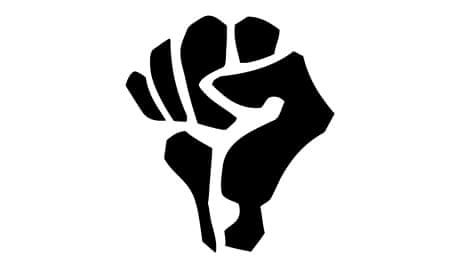Fears of a student uprising against Serbia's increasingly unpopular regime brought an abrupt, and early, end to all university classes last week. With students now the focus of Slobodan Milosevic's venom, authorities also banned all gatherings on Serbian campuses, effectively turning them into forbidden zones.
Otpor, which means Resistance, has been a long time in the making. But the student movement of disaffected graduates and university attendees is beginning to do what no other force has yet done. It is uniting a war-weary population against the man most blamed for dragging the Balkans into anarchy.
For supporters, who say Otpor is "a state of mind, a way of thinking", the omens have never looked better. This month alone Otpor-orchestrated protests, street happenings and university take-overs have plunged the regime into panic. Suddenly analysts think the movement could be the kind of kindling that will spark the revolution the country so badly needs.
"All the polls show there is now a great thirst for political change, but people here are very suspicious of the opposition. They see them as squabbling power-seekers who are vain and immature," says Milan Nicolic, director of the Belgrade-based Centre for Policy Studies. "Otpor, by contrast, is viewed as incorrupt, bold, well-organised and aggressive. The students don't have any skeletons to hide, they have never done deals with Milosevic and their demands for change sound very legitimate in the ears of the people."
Serb-watchers - a cynical bunch at the best of times - say the youth factor is what could rid the pariah state's political compass of moral imperfections.
"They've got nothing to lose," says Nicolic. "The regime knows that, and that's what has frightened it."
In a matter of weeks the movement's popularity has suddenly soared. Repression, on the back of a fresh crackdown against Belgrade's independent media, has only served to bolster support. Serbs of all ages and political persuasions have been appalled by scenes of fresh-faced students being arbitrarily arrested and bundled into police buses in towns nationwide. Reports of the maltreatment of Otpor members in custody have further infuriated a population exhausted by years of isolation and poverty.
The government's decision, last week, to brand the youngsters as "fascist hooligans" and "western-paid terrorists" has also increased the movement's appeal. "Otpor is as much about an idea, the idea of resistance, as anything else," says Vukasin Petrovic, one of the movement's ever-changing spokesmen. "The regime can beat us, but it can't beat or control ideas, and that is the key to Otpor's success."
Serbia has a student population, on paper at least, of around 250,000, although far fewer have bothered turning up to classes since the regime passed legislation in May 1998 stripping universities of their autonomy. As tenured professors, deans and de partmental heads have been ousted by government-approved replacements, thousands of students have enrolled in Belgrade's two alternative universities, which are run as underground establishments by those who lost their jobs.
Otpor, say its founders, was the direct result of the restrictive measures. "We started as a small protest movement in faculties and high schools," says Petrovic, a 23-year-old political science student at Belgrade Univer sity. "Now we have 27,000 signed-up members and eight million activists, because Otpor is now in the minds of most of the population. People realise we are not like opposition politicians - we are not in this to promote ourselves, we just want change."
Milosevic has feared student-power since hundreds of thousands of demonstrating undergraduates forced him to concede electoral fraud, and overturn the results of a municipal vote, in 1996. Now that they have re-emerged to inject a new lease of life into the opposition, he has begun to fear them even more. And experience has taught Otpor how to outwit the authorities: the movement is a network of loosely organised groups, without apparent leadership, to prevent penetration and arrests.
"Our [four] universities have always been overpopulated precisely because Milosevic has wanted to keep young, unemployed urban people off the streets," says Nicolic. "The regime has always tried to manipulate students by appointing professors who refused to grant them credits, or pass their exams, if they took part in campus protests."
Otpor's most significant weapon, so far, has been its symbol: a clenched fist that now graces more than 400,000 posters, 500,000 T-shirts and two million leaflets, match boxes and badges throughout Serbia. In some of Belgrade's recent mass demonstrations opposition leaders, including Zoran Djindjic, who heads the Democratic Party, have worn Otpor T-shirts in recognition of the movement's growing popularity.
"We are getting financial support from Serbs who live abroad," says Petrovic. Exiled youngsters, who are part of the country's growing brain-drain, have thrown their weight behind Otpor. They see it as the best vehicle to bring about political change that will allow them to return home.
Antagonism between the activists and the authorities has been exemplified by an almost-laughable war of posters now being fought on Belgrade's streets. Anxiety over the group is such that police have often forced people in Otpor t-shirts to take them off. Activists say that despite the threat of laws to end their "terrorist activities", the next step will be an increasing campaign of civil disobedience.
The regime's decision to close universities, after students threats of a mass walk-out this week, appears to have hardened the resolve of protestors fighting for democracy. Otpor activists said the measures were the clearest sign yet of the panic gripping the authorities.
"I don't think anything can stop us now," said Petrovic. "In fact, all these measures just make us much better protestors. Over the past five years the government has destroyed a generation of students by stopping exams and classes whenever it gets afraid and frankly, we've had enough."
